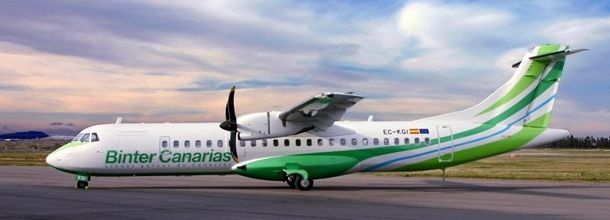
For the umpteenth time, the EU's self-contradiction in relation to Western Sahara surfaces.
On Tuesday 24 October, the European Parliament will vote on the EU-Morocco Euro-Mediterranean Aviation Agreement.
Once again, it seems that the territorial scope of the deal will include the Occupied Territories of Western Sahara. The Agreement defines the territory of the Kingdom of Morocco as “the land areas (mainland and islands), internal waters and territorial sea under its sovereignty or jurisdiction” (art.1.14). But according to Moroccan domestic legislation, that would include Western Sahara. The airports of Dakhla and El Aaiun (often spelled as Laayoune in Morocco), two of Western Sahara’s main cities, are integrated within the Moroccan national aviation space and are enlisted as Moroccan airports.
Western Sahara is regarded by the UN as a non-self-governing territory still to finalize the process of decolonisation. Morocco invaded Western Sahara in 1975, and to date continues to maintain an illegal military presence in three-quarters of the territory.
The EU’s aviation agreements aim to develop a wider European Common Aviation Area, to facilitate the opening of markets and the alignment of aviation legislation, with particular attention to EU's neighbourhood countries.
The Kingdom of Morocco was the first country outside Europe to sign the Aviation Agreement. The aviation deal with Morocco has been provisionally in force since December 2006. In February 2014, the EU Commission proposed an amended version of the deal, accounting for changes within the EU (three new Member States since 2006, and the Lisbon Treaty). It is this amended version which is now going through Parliament.
Last week, the Parliament’s Transport and Tourism Committee thumbed up the EU-Morocco Aviation Agreement, thus moving it up to the vote in plenary, for final approval.
When Parliament approved the aviation deal with Morocco back in 2006, the European Union had not yet clarified its legal position on the territorial scope of any of its agreements with Morocco. But in December 2016, the Court of Justice of the European Union ruled that Western Sahara is a “distinct and separate” territory from Morocco (art. 106, C 104/16 P Polisario vs Council). As such, the Court stated, no EU trade or association agreement with Morocco can be applied to Western Sahara, unless with the explicit consent of the people of the territory. Thus creating an incentive for the Parliament’s Legal Services to consider the territorial application and legality of the aviation deal that is now up for vote.
“We regret the absence of a political majority in the Parliament to support the request from the Greens/EFG group for a legal opinion which would have allowed for a fully informed decision on this complex legal matter with critical geopolitical implications. We do however look forward to the European Commission clarifying the territorial scope of this agreement, before the vote. European citizens have a right to know whether their planes to El Aiun/Laayoune and Dakhla are flying in illegality or not”, says Greens MEP Florent Marcellesi.
"It does not appear that the Saharawi people have given their consent to the exploitation of their airspace", says Davide Contini from Western Sahara Resource Watch. "If Parliament is to approve the revised agreement on Tuesday, it is likely that European companies that are operating in Western Sahara - for passenger or cargo traffic - are left in legal uncertainty, notably with regard to EU and international norms on aviation safety and security. Which regulations ought to apply to flight connections to Western Sahara, given its 'separate and distinct' status? Ultimately, the enhancement of aviation ties between the EU and Western Sahara, by facilitating trade in products from this territory, raises - once again - fundamental questions of the complicity of the EU with an illegal occupation", Contini says.
WSRW has determined that there are 11 international flights per week into Western Sahara, operated by Binter Canarias and Royal Air Maroc. The flights connect Dakhla and El Aaiun to Gran Canaria. A new connection to France, via Transavia, will be opened by the end of October 2017.
Ever since the agreement entered into force in 2006, up to 2016, the increase in passenger traffic into Western Sahara is around +266%.
EU Parliament set for blind landing of aviation deal
Tomorrow, the European Parliament is scheduled to vote on an amendment to the EU-Morocco Aviation Agreement - without any clarifications from the EU Commission as to how the proposal aligns with the 2018 Ruling of EU Court of Justice, invalidating the application of that very Agreement to Western Sahara.
Update: the European Parliament has postponed all votes scheduled to take place on 10 March to a later date, due to the COVID-19-crisis.
EU Court declares aviation deal invalid in Western Sahara
BREAKING: the Court of Justice of the European Union has ruled that the EU-Morocco Aviation Agreement does not apply to Western Sahara.
Polisario takes EU Council to Court over aviation deal with Morocco
On 24 April 2018, the liberation movement of Western Sahara brought action against the EU Council for concluding an aviation agreement with Morocco that includes the territory of Western Sahara.
Interview with Jytte Guteland: 1 of 5 MEPs evicted from Western Sahara
“I think this incident should alert people about these EU-Morocco trade negotiations on products from Western Sahara: they are not transparent at all”, says Jytte Guteland, socialist Euro-parliamentarian from Sweden.


